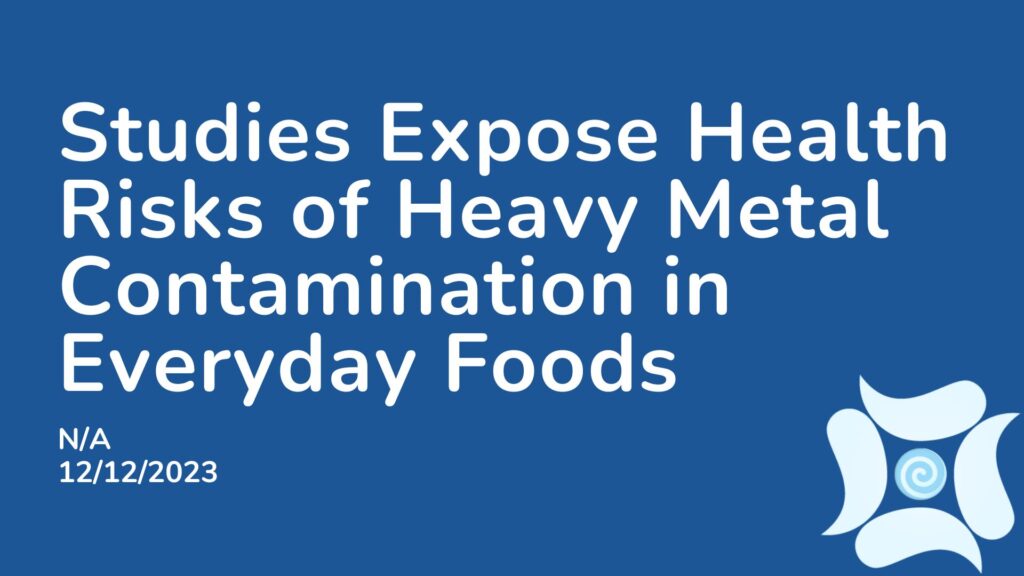Summary:
A 2021 US Congressional Report highlighted elevated metal levels in infant food, and other recent revelations have seen high lead content in children’s fruit puree pouches. Two groundbreaking studies are set to be unveiled at the 2023 Society for Risk Analysis (SRA) Annual Conference, shedding light on the correlation between heavy metal exposure in food and the associated risks of cancer and other serious health implications. Food crops, which can absorbing heavy metals from contaminated soil, air, and water, contribute to the presence of hazardous elements such as lead, arsenic, and cadmium in everyday foods ranging from rice and cereals to nuts and spinach. Leading the charge in investigating these health risks is Felicia Wu, a food scientist at Michigan State University and president of the SRA. Wu will present the findings from the two recent studies. The first entails a comprehensive evaluation of health risks linked to dietary exposure to lead, arsenic, and cadmium. The second involves a quantitative assessment of cancer risks associated with inorganic arsenic exposure. Wu emphasizes, “Results from these studies have important implications for food safety regulations, public health policies, and consumer awareness.” A summary of the papers (not yet available), reports that there is a strong association between dietary exposure and adverse health effects, considering both cancer and non-cancer risks. Lead, a toxic metal commonly found in old paint, water pipes, and contaminated soil, exhibited moderate to high risk scores for lung, kidney, bladder, stomach, and brain cancers. It also demonstrated moderate to high scores for non-cancer risks, including reproductive, neurological, renal, and respiratory effects. Arsenic, a naturally occurring toxic element present in rice, wheat, and leafy green vegetables, displayed moderate to high scores for skin, bladder, lung, kidney, and liver cancers. It also exhibited moderate to high scores for skin lesions, cardiovascular disease, immunological, neurological, reproductive and developmental effects. Cadmium, a toxic metal found in various foods, revealed moderate to high risk scores for prostate, renal, bladder, breast, pancreatic, and endometrial cancers, along with non-cancer risks like renal, developmental, reproductive, immunological, and neurological effects. This research, based on a comprehensive review of scientific literature and data from regulatory agencies, emphasizes how critical is it for food safety regulations, public health policies, and consumer awareness.
Abstract:
Two new studies provide information on the correlation between exposure to heavy metals in food and the risk of cancers and other serious health risks.
Article Publication Date: 12/12/2023
DOI: 10.1038/s44324-023-00001-2



